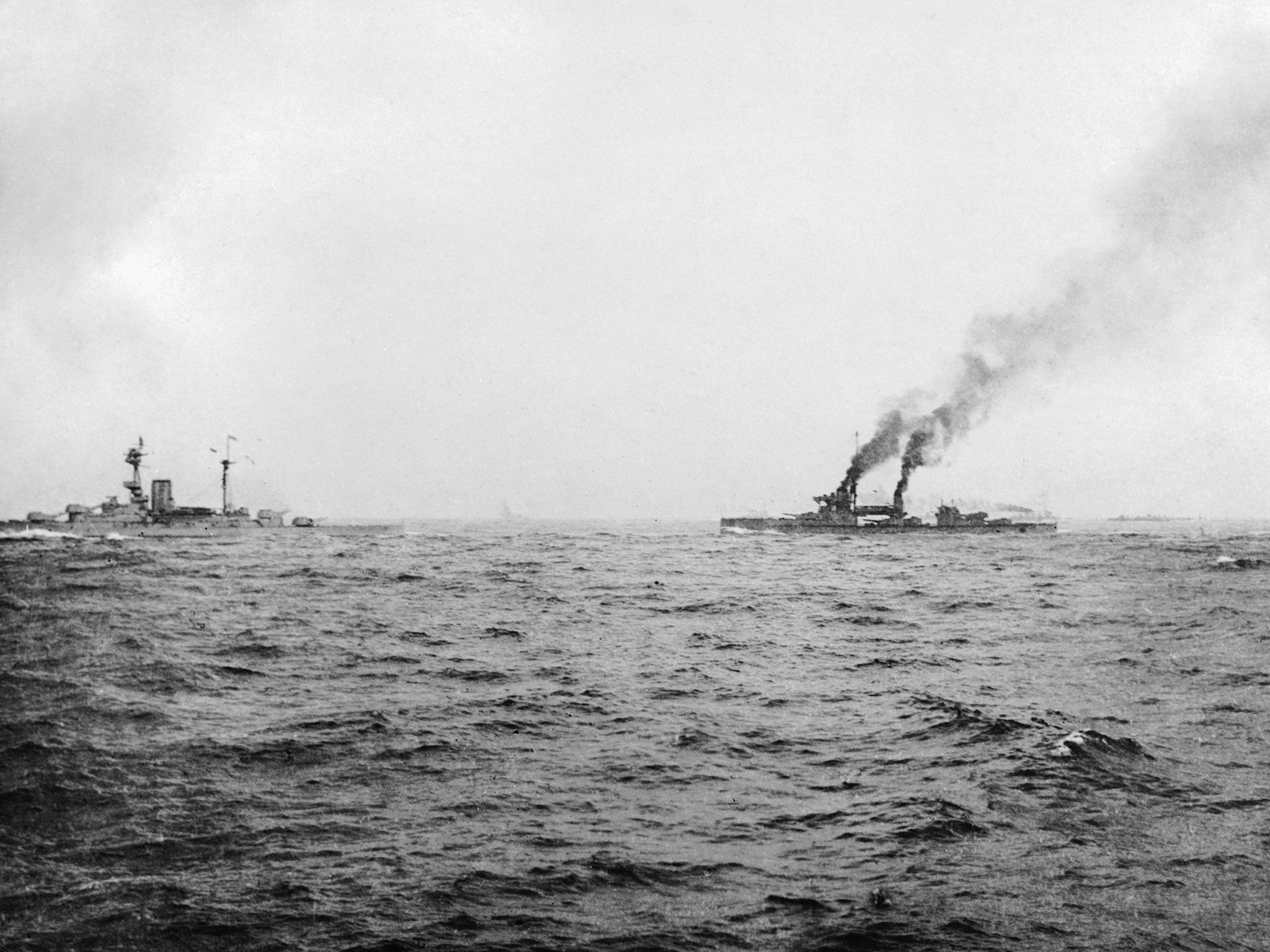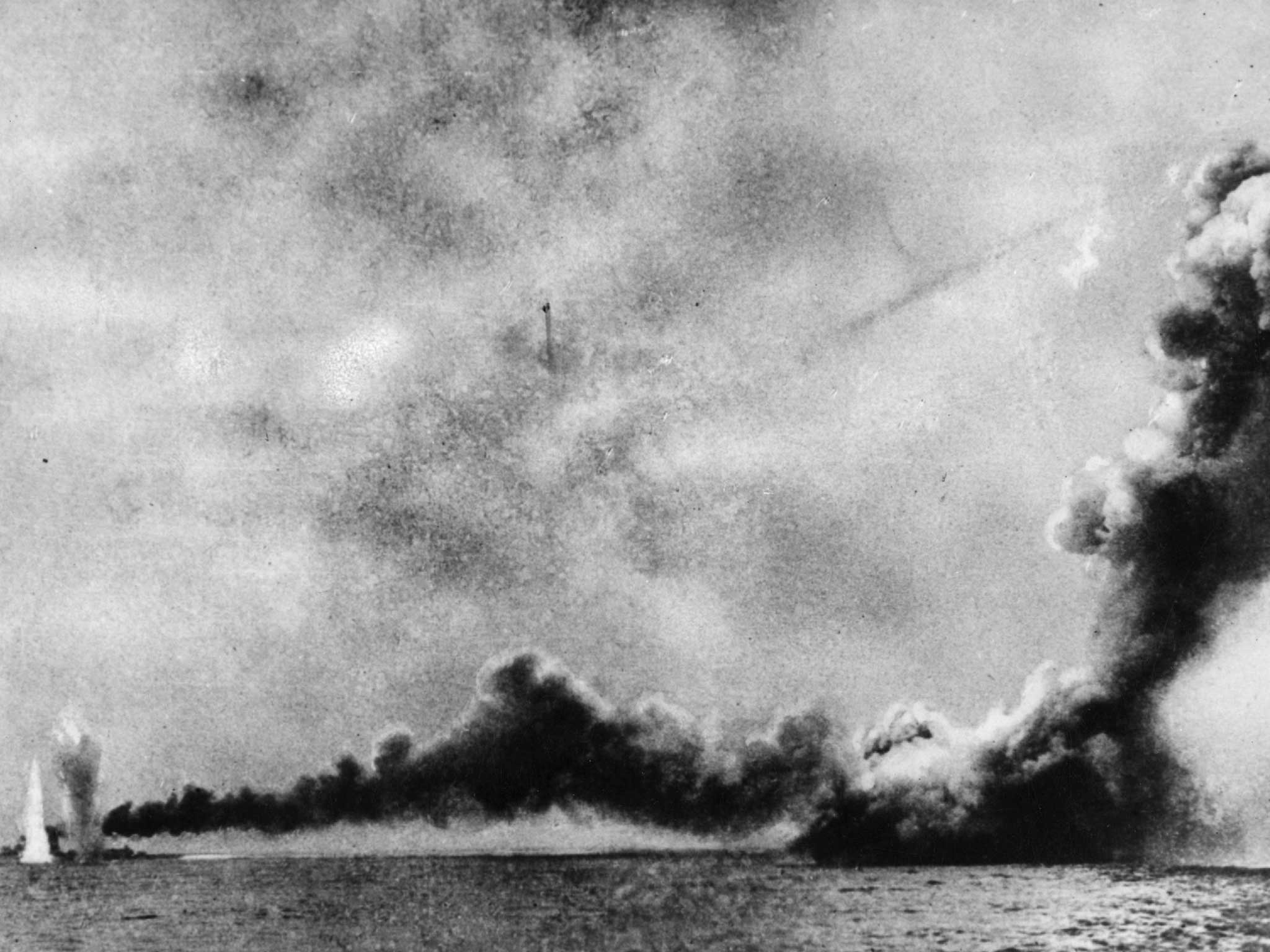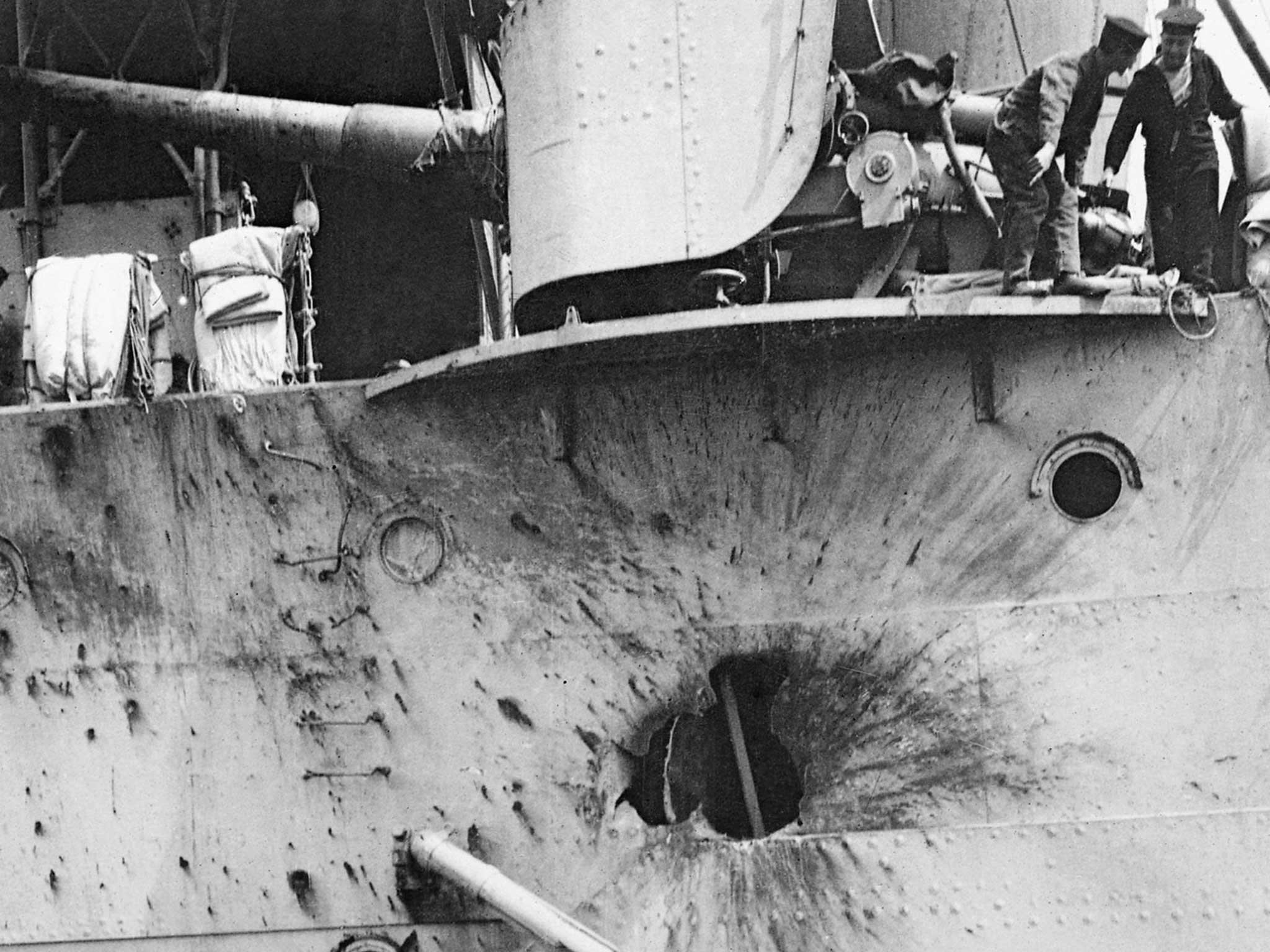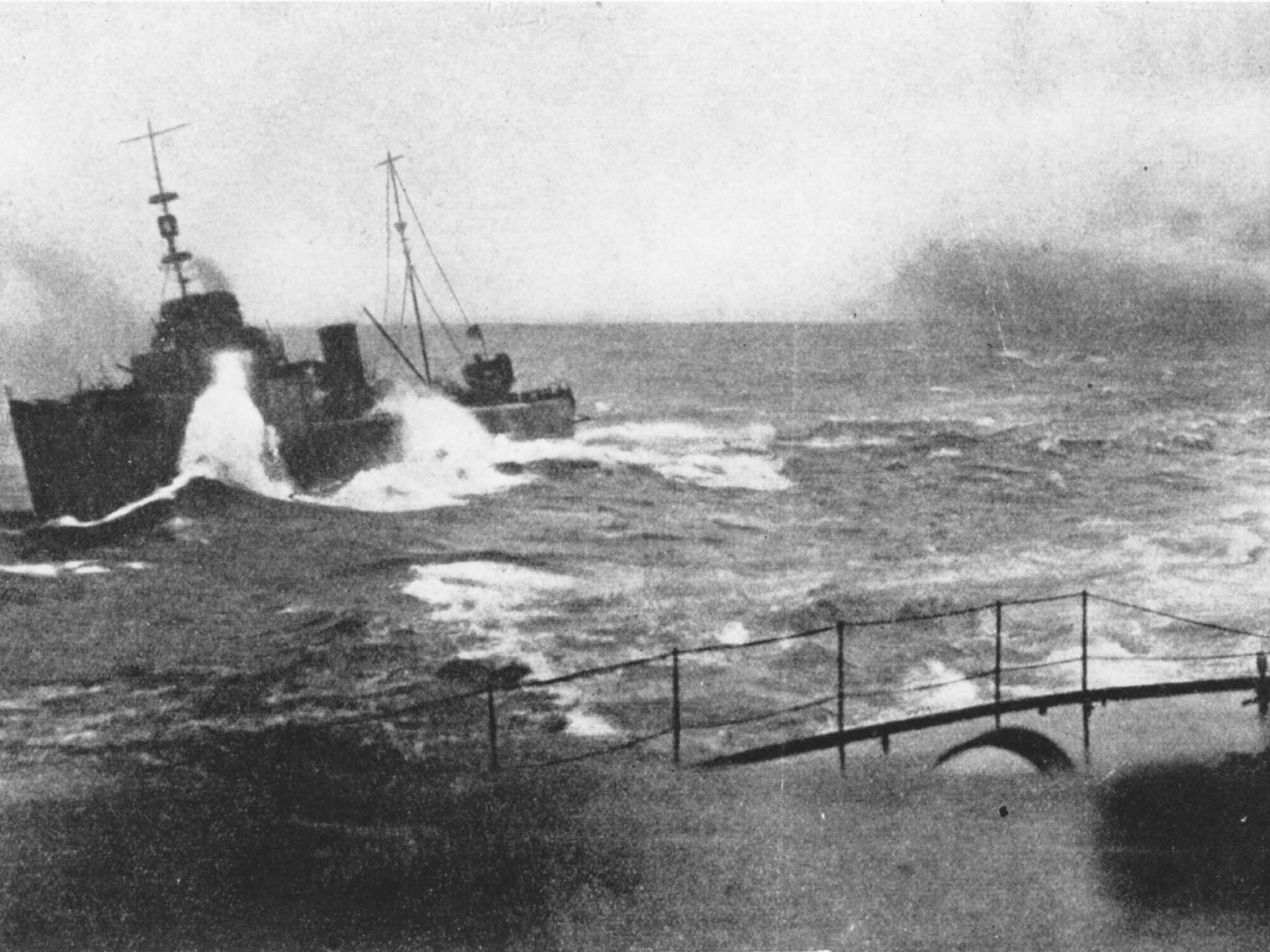Battle of Jutland centenary: How is the UK marking WWI's greatest sea battle - and who really won?
A service is being held at the UK's most northerly cathedral in Kirkwall, Orkney, with David Cameron and German President Joachim Gauck expected to attend

Your support helps us to tell the story
From reproductive rights to climate change to Big Tech, The Independent is on the ground when the story is developing. Whether it's investigating the financials of Elon Musk's pro-Trump PAC or producing our latest documentary, 'The A Word', which shines a light on the American women fighting for reproductive rights, we know how important it is to parse out the facts from the messaging.
At such a critical moment in US history, we need reporters on the ground. Your donation allows us to keep sending journalists to speak to both sides of the story.
The Independent is trusted by Americans across the entire political spectrum. And unlike many other quality news outlets, we choose not to lock Americans out of our reporting and analysis with paywalls. We believe quality journalism should be available to everyone, paid for by those who can afford it.
Your support makes all the difference.Prime Minister David Cameron will join descendants of those who fought at the Battle of Jutland for a centenary service to remember the 8,645 seamen who died in the largest naval battle of the First World War.
One hundred years ago British and German ships engaged in a 36-hour conflict off the coast of Denmark which would leave both sides with devastating losses and change the course of the war.
A service is being held at the UK's most northerly cathedral in Kirkwall, Orkney, where Mr Cameron and German President Joachim Gauck are expected to attend.
Duke of Edinburgh pulls out
The Princess Royal will represent the Royal family at the memorial at St Magnus Cathedral where thousands of ceramic poppies have been installed in tribute to the war dead and a specially-commissioned piece of music by the late composer and Orkney resident Sir Peter Maxwell Davies will be performed.
The Duke of Edinburgh who was due to attend will now not join events in Orkney following doctor's advice.
Descendants of those who fought at Jutland have been invited to join the commemorations, which will continue with a service at Lyness Cemetery on the island of Hoy - the final resting place for more than 450 service personnel who died in the war, including sailors killed at Jutland.
The cemetery stands close to Scapa Flow, from where the British Grand Fleet set out for the Jutland Bank to repel German forces attempting to break a British blockade.

Both nations claimed victory
Almost 250 ships took part, creating a scale of battle that has not been seen since.
Both nations claimed victory - Germany because of the 6,094 British losses compared to the 2,551 men it sacrificed - but Britain had seriously weakened the enemy's naval capability.
At the time, the battle dented domestic pride in the Royal Navy. Yet with shipping lanes and sea supply lines to the front kept open, Jutland would arguably prove a strategic victory for Britain.
On Tuesday there will also be a remembrance service at sea, where British and German naval representatives will scatter poppies and forget-me-nots - the German flower of remembrance - into the North Sea at Jutland Bank.
The Government said the commemorations will remember all those who lost their lives while also paying tribute to the role of the Royal Navy and the Orkney Islands in the 1914-18 conflict.
Orkney Islands Council vice-convener Jim Foubister said: "We are proud to be hosting the UK's national commemoration of the Battle of Jutland.
"It is fitting that the Jutland commemorations will draw to a close among the graves of some of those who made the ultimate sacrifice for their countries a century ago."
Commemorative events marking the Jutland centenary have previously been held at Rosyth and South Queensferry on the Firth of Forth, from where the Battlecruiser force set sail ahead of the battle on May 31 1916.

One vessel remains
The last surviving vessel from the Battle of Jutland will provide the backdrop for a commemoration honouring the 10,000 Irish sailors who served in World War One.
HMS Caroline, a light cruiser built on Merseyside in 1914, will open to the public in Belfast tomorrow after a £15 million-plus lottery-backed restoration project.
Today, descendants of sailors who saw action in the First World War will gather alongside it at the city's Alexandra dock for a special memorial event on the 100th anniversary of the Battle of Jutland.
Weighing 3,750 tons and measuring 446ft (136m), HMS Caroline was part of the screening force which sailed out ahead of the Royal Navy's Grand Fleet during the battle off Denmark to establish the position of the German battleships.
Six years after the war ended, HMS Caroline was moved from Portsmouth to Belfast to become a training vessel for local Royal Navy Reserves. Most of the rest of the fleet was decommissioned and broken up.
HMS Caroline performed its function as a drill ship up until 2011, apart from during the Second World War when it was used as an operations headquarters for the efforts to protect the Atlantic convoys from German U-boats.
The vessel, which is docked in the same shipyards where the Titanic was built, was in danger of rusting away or even being scrapped before moves to save it started to build up steam three years ago.

The Battle of Jutland in numbers
36: The length in hours the naval engagement lasted over May 31 and June 1 off the coast of Denmark's Jutland peninsula.
6,094: The number of deaths on the British side.
2,551: The deaths on the German side.
More than 1,000 others were injured.
249: The number of ships involved, with 150 British and 99 German vessels. The ships carried more than 100,000 sailors, making Jutland the largest naval battle in history.
25: The total number of warships sunk during the battle, 14 from the British Grand Fleet - including HMS Invincible and HMS indefatigable - and 11 from the German High Seas Fleet.
4: The number of Victoria Crosses awarded after the battle, to Major Francis Harvey, Commander Barry Bingham, Commander William Loftus Jones, and 15-year-old Boy First Class Jack Cornwell - who died from his injuries in the days afterJutland.
The figures were obtained from the Royal Navy Museum.
Join our commenting forum
Join thought-provoking conversations, follow other Independent readers and see their replies
Comments